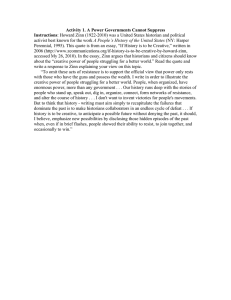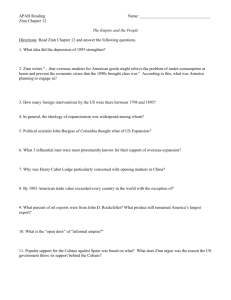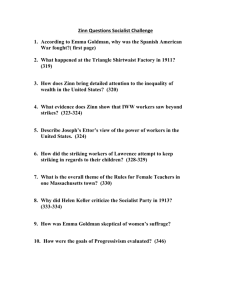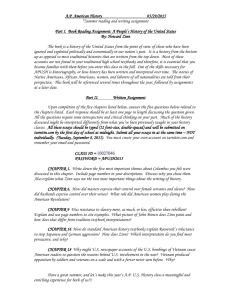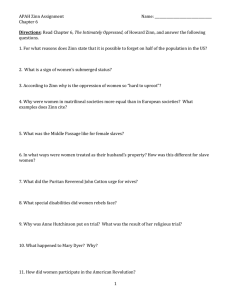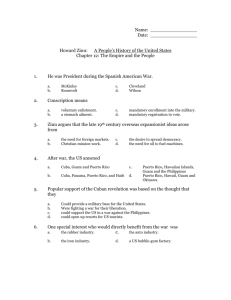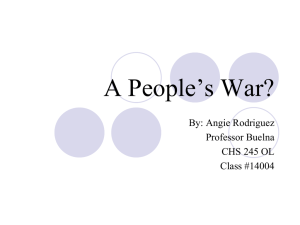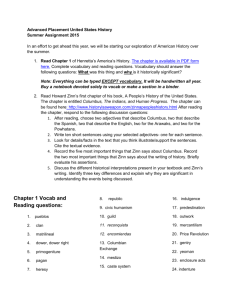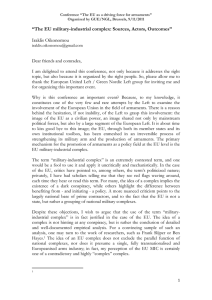Answer these questions
advertisement
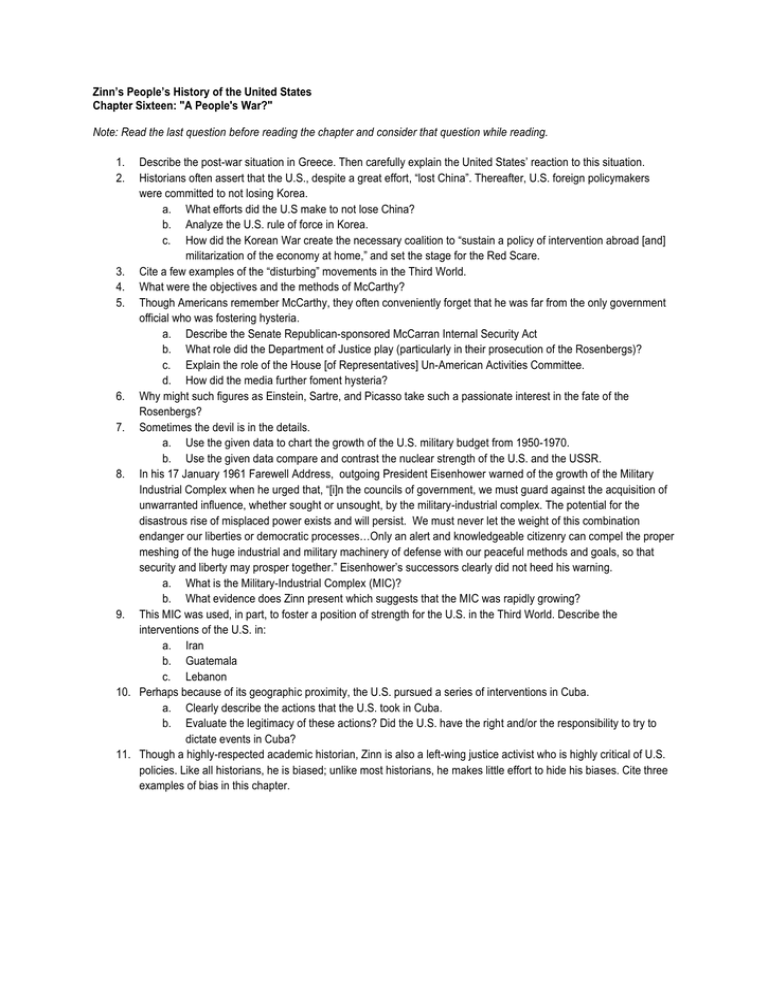
Zinn’s People’s History of the United States Chapter Sixteen: "A People's War?" Note: Read the last question before reading the chapter and consider that question while reading. 1. 2. Describe the post-war situation in Greece. Then carefully explain the United States’ reaction to this situation. Historians often assert that the U.S., despite a great effort, “lost China”. Thereafter, U.S. foreign policymakers were committed to not losing Korea. a. What efforts did the U.S make to not lose China? b. Analyze the U.S. rule of force in Korea. c. How did the Korean War create the necessary coalition to “sustain a policy of intervention abroad [and] militarization of the economy at home,” and set the stage for the Red Scare. 3. Cite a few examples of the “disturbing” movements in the Third World. 4. What were the objectives and the methods of McCarthy? 5. Though Americans remember McCarthy, they often conveniently forget that he was far from the only government official who was fostering hysteria. a. Describe the Senate Republican-sponsored McCarran Internal Security Act b. What role did the Department of Justice play (particularly in their prosecution of the Rosenbergs)? c. Explain the role of the House [of Representatives] Un-American Activities Committee. d. How did the media further foment hysteria? 6. Why might such figures as Einstein, Sartre, and Picasso take such a passionate interest in the fate of the Rosenbergs? 7. Sometimes the devil is in the details. a. Use the given data to chart the growth of the U.S. military budget from 1950-1970. b. Use the given data compare and contrast the nuclear strength of the U.S. and the USSR. 8. In his 17 January 1961 Farewell Address, outgoing President Eisenhower warned of the growth of the Military Industrial Complex when he urged that, “[i]n the councils of government, we must guard against the acquisition of unwarranted influence, whether sought or unsought, by the military-industrial complex. The potential for the disastrous rise of misplaced power exists and will persist. We must never let the weight of this combination endanger our liberties or democratic processes…Only an alert and knowledgeable citizenry can compel the proper meshing of the huge industrial and military machinery of defense with our peaceful methods and goals, so that security and liberty may prosper together.” Eisenhower’s successors clearly did not heed his warning. a. What is the Military-Industrial Complex (MIC)? b. What evidence does Zinn present which suggests that the MIC was rapidly growing? 9. This MIC was used, in part, to foster a position of strength for the U.S. in the Third World. Describe the interventions of the U.S. in: a. Iran b. Guatemala c. Lebanon 10. Perhaps because of its geographic proximity, the U.S. pursued a series of interventions in Cuba. a. Clearly describe the actions that the U.S. took in Cuba. b. Evaluate the legitimacy of these actions? Did the U.S. have the right and/or the responsibility to try to dictate events in Cuba? 11. Though a highly-respected academic historian, Zinn is also a left-wing justice activist who is highly critical of U.S. policies. Like all historians, he is biased; unlike most historians, he makes little effort to hide his biases. Cite three examples of bias in this chapter.
